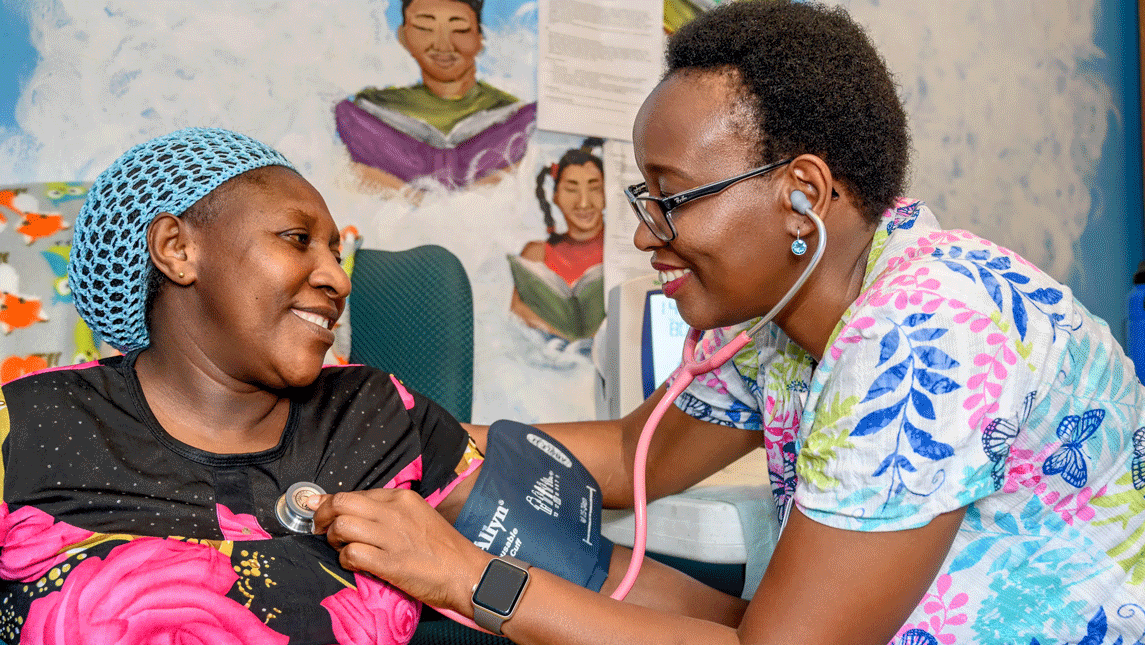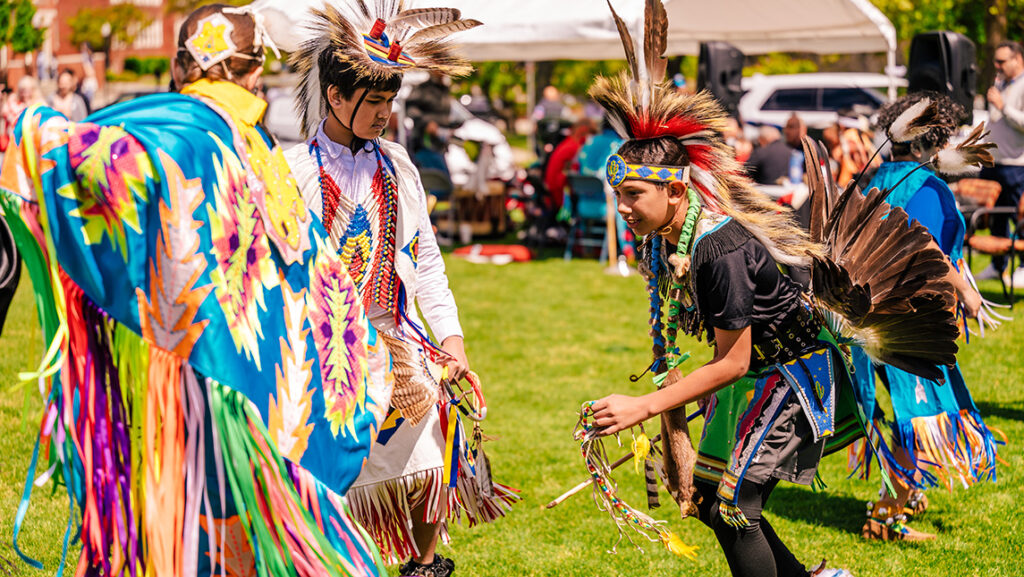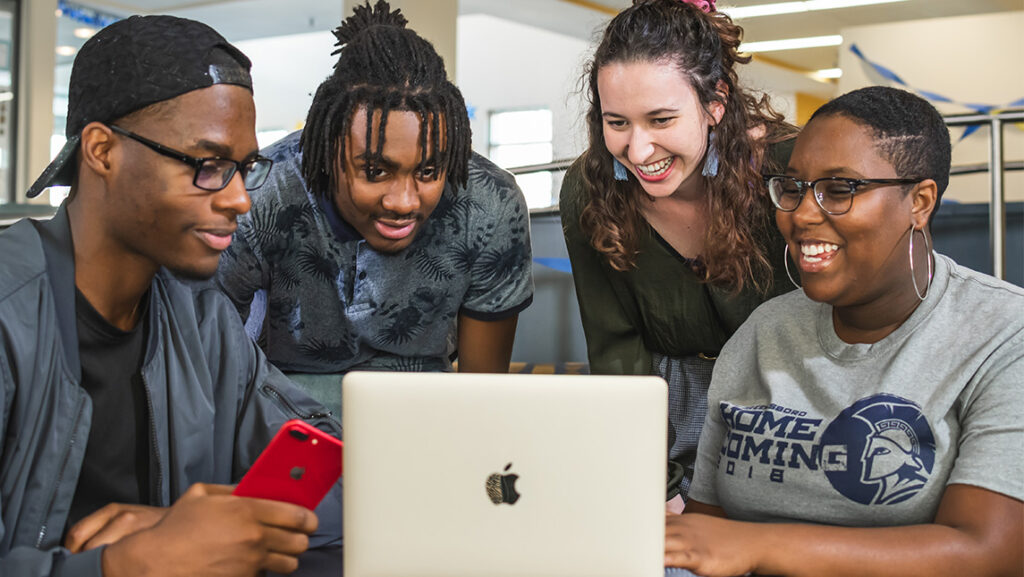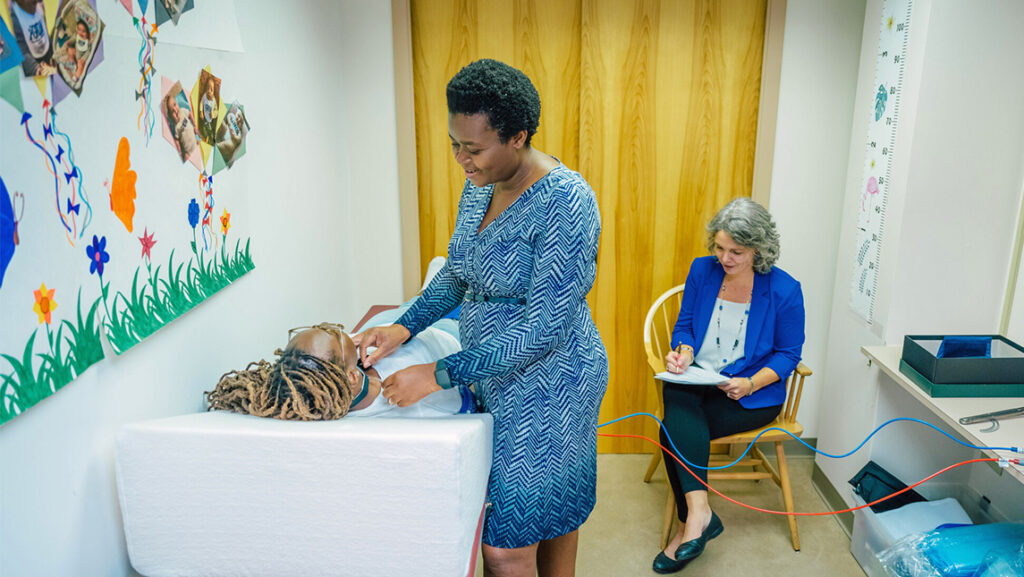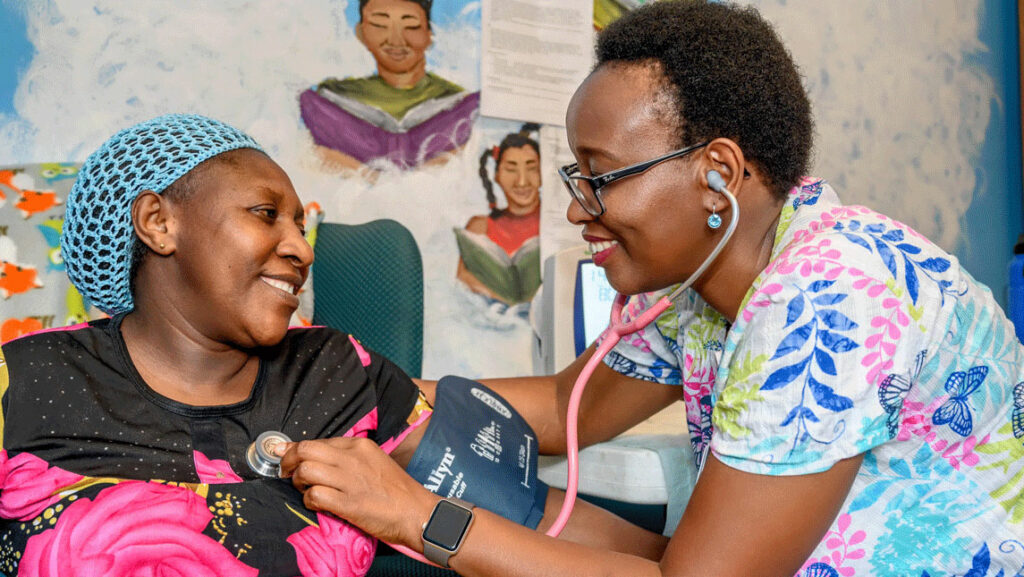
UNC Greensboro’s Center of New North Carolinians (CNNC), led by Dr. Diya Abdo, was recently awarded a new grant from the CDC Foundation to provide flu and COVID-19 vaccine education and access among immigrants and refugees in the Greensboro area, in collaboration with the New Arrivals Institute.
Through the Triad Vaccine Education and Access Project, the CNNC staff will provide health access and education in the more than twelve different languages that are spoken among the clients they serve. The CNNC will also work with community leaders who can implement vaccine outreach in communities.
The project will work hand-in-hand with CNNC’s Immigrant Health ACCESS Project, which has received nearly $600,000 in funding from the Cone Health Foundation and aims to increase access to integrated health care among uninsured immigrant and refugee adults in the Greensboro area.
As Abdo says, Greensboro has thriving immigrant communities, and great infrastructure for refugee and immigrant support, such as through the New Arrivals Institute. But, community members face obstacles in accessing health care for a variety of reasons. There are transportation challenges, lack of health insurance, language barriers, technology hold-ups in receiving telehealth services, and obstacles to receiving information and care that is culturally responsive – which undermines trust in health systems.
“So, one of the things that the CNNC really prides itself on is being able to create relationships of trust with the communities that we serve, because the community health workers on the staff who work at the CNNC and provide this support are from the communities themselves,” says Abdo. “And, we are sensitive to that lack of trust that exists and we work on building and rebuilding foundations.”
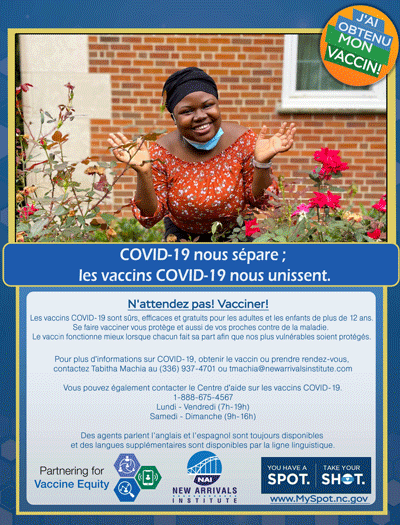
Like all of the services provided by the CNNC, the free vaccine clinics are onsite at all three of the centers that make up the CNNC, eliminating the transportation challenge that makes health care prohibitive. Additionally, written materials are being developed in Swahili Kinyarwanda, French, Burmese, Arabic, Nepali, Spanish, Vietnamese, Sango, Fula, Kurinji and Khmer.
“These are the languages that are spoken by folks at the CNNC and by the community health workers,” says Abdo.
In addition to running the vaccine clinics, the CNNC grant will support events that focus on flu and COVID-19 vaccine access, education, and outreach. They plan to mobilize both virtual platforms and sites, including at the center residential areas with community health workers and with the New Arrivals Institute. They will also work on “messenger training” or leadership training whereby community leaders can receive information and embed it throughout their communities.
“UNCG’s Center for New North Carolinians is uniquely equipped to address vaccine inequities in our triad community,” said Leilani Roughton, executive director of the New Arrivals Institute. “By working with them on the vaccine equity program we are able to provide better and more accessible vaccine education and access. We have had three clinics in the last few months and each time, CNNC spread the word in the community about the upcoming clinics, provided interpretation during the clinic, and helped ensure the clinics went smoothly. Their partnership is a key element to the success of the program.”
This year, Naglaa Rashwan was named senior program coordinator for CNNC’s Immigrant Health ACCESS Project, leading the team of eight multilingual health workers.
“I really appreciate the CDC efforts in investigating the reasons behind the disparities in vaccination rates among different communities,” she shared. “This work will help us target the real causes of the vaccination hesitancy and be more responsive to the needs of the community.”
Story by Susan Kirby-Smith, University Communications
Photography by Martin W. Kane, University Communications
